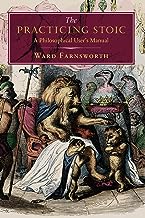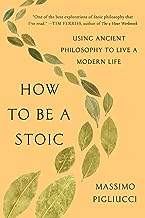To Your Wealth: Ancient philosophy for modern finance
“Life without a design is erratic” – Seneca
Long before the first stock company was created (the Dutch East India Company in 1602 for the trivia fans), people were developing ideas in Ancient Greece and Rome that could easily apply to today’s personal finance decisions. A particular sect of philosophers would develop the principles of Stoicism which have enjoyed a bit of a renaissance in recent years due to their timeless ideas.
To those familiar with the typical usage of the word “stoic,” an important distinction is in order to differentiate the “lower-case” version which is defined as “someone who endures suffering without showing their feelings” from the philosophical approach utilizing the “upper-case” Stoic as one who doesn’t suppress emotions but rather attempts to reduce negative emotions while simultaneously enhancing positive emotions. How does this relate to personal finance?
For one, many financial decisions are inherently emotional decisions. If we can apply a couple of strategies to better understand our emotions, we can also make better financial decisions. Second, incorporating a specific philosophy of life provides a framework for aligning our money with our lives (versus focusing on money as being the end and not just the means).
Three principles to consider as they relate to financial decisions include negative visualization, focus of control and life’s purpose. Our guides to these principles will be several individuals who lived thousands of years ago including Seneca the Younger, Epictetus and Marcus Aurelius. One was a slave while another was a Roman emperor so their experiences covered a broad spectrum of economic circumstances. The primary source for relating these principles is Dr. William Irvine’s book “A Guide to the Good Life” but I’ll provide suggestions for other resources to consider too (besides the original works of each philosopher).
Irvine describes negative visualization as “spending time imagining that we have lost the things we value.” Another way to think of this is worst-case scenario planning. If we’re prepared for what could be the worse to happen, then most likely reality will be better than expected. This is a helpful strategy when considering important financial decisions. For example, when deciding how much to invest in stocks, looking at past performance during market declines is helpful in realizing you could lose half your money over the next year. If that’s unacceptable then scaling back your stock exposure is essential. Imagining yourself without something of value may also increase your appreciation of it versus taking it for granted. Our health or important relationships are typical examples.
Focusing on what you can control versus what’s outside of your control is perhaps the most important principle especially as it relates to managing your investments. In fact, a multi-billion dollar investment firm, Dimensional Fund Advisors (DFA), lists this as one of their top ten principles of investment success. To see the entire list, click DFA Pursuing a Better Investment Experience.
Epictetus famously summed this up as “some things are up to us and some are not up to us.” Recognizing you cannot control the direction of the stock market is a humbling acknowledgement that you most likely also cannot predict the future direction of the market. Therefore, when it comes to investing it’s important to focus on the things you can control such as expenses, exposure to risk factors and diversification across different types of assets. Reducing your attachment to things outside your control will undoubtedly lead to less stress.
The final principle, creating a philosophy of life, is perhaps the most difficult yet can also have the greatest impact on how you spend not just your money but also your time (which can never be replenished). The point is to avoid living a life where on your deathbed you look back with a sense of regret. According to Irvine, the first component for a philosophy of life is defining a “grand goal of living.” Perhaps it’s to maximize pleasure (which is the hedonistic lifestyle) or experience tranquility (which is a common theme among Stoics).
The second component for creating a philosophy of life is to develop a strategy to achieve your grand goal (at FSG, we call it your “Great Life”). This aligns with our personal finances to make sure our limited resources are best used in living the most meaningful life possible. Money is simply a tool to achieve our goals but if those goals are misplaced, the chances of misspending our money is magnified.
Besides Irving’s book (which is one of those few books I reread every couple of years), I also recommend these books on Stoicism:
– “How to Be a Stoic” by Massimo Pigliucci
– “The Daily Stoic” by Ryan Holiday (plus all his other Stoic books)
– “The Practicing Stoic” by Ward Farnsworth 
– “The Stoic Challenge” by William Irvine
There are a number of other schools of thought offering different perspectives so while Stoicism is just one option, it’s a great starting point for thinking more deeply about this shared journey of life we’re all traveling. Send me an email (justus@toyourwealth.com) if you found these principles helpful or if there’s another approach that’s helped you.






